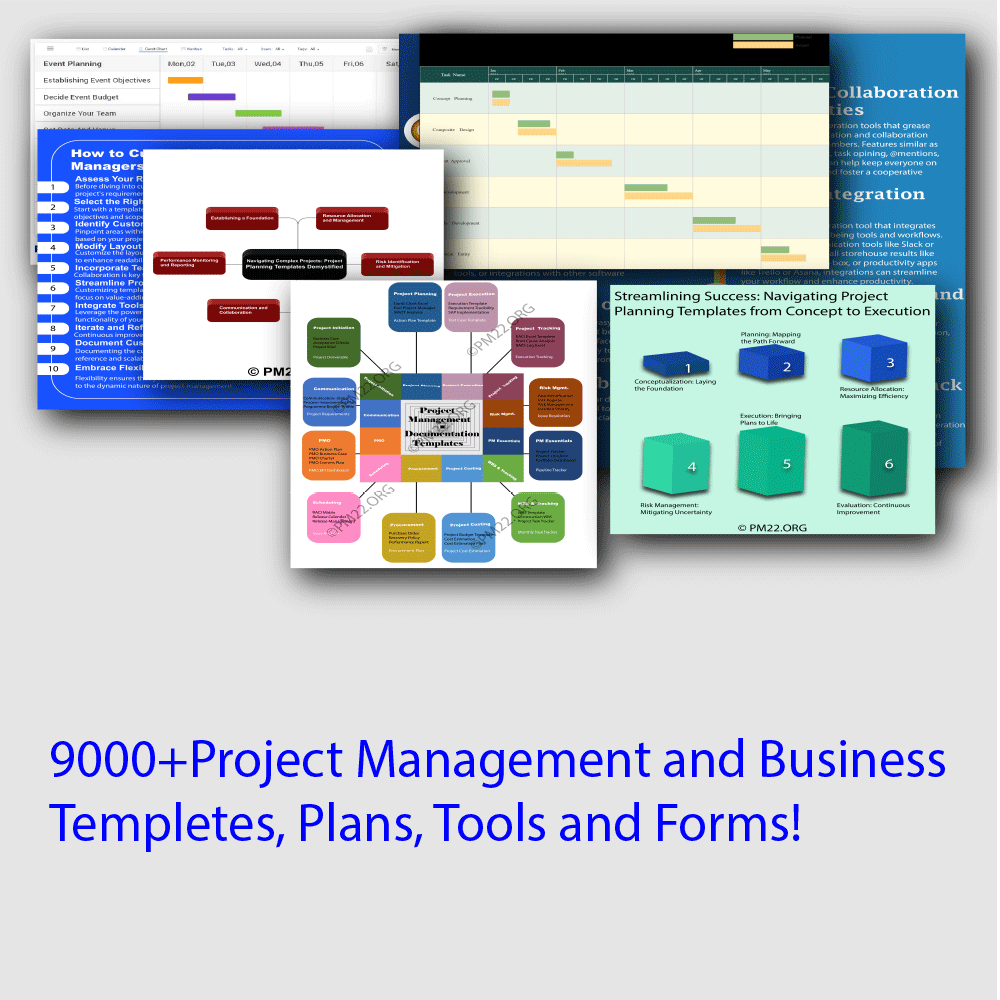 Transitioning into a management role for the first time is both exciting and challenging. One of the key responsibilities you’ll face is project planning—ensuring that all the moving pieces come together to achieve your goals. Effective project planning is essential to your success as a new manager, so understanding the Project Planning Fundamentals will help you navigate the complexities and set you on the path to success.
Transitioning into a management role for the first time is both exciting and challenging. One of the key responsibilities you’ll face is project planning—ensuring that all the moving pieces come together to achieve your goals. Effective project planning is essential to your success as a new manager, so understanding the Project Planning Fundamentals will help you navigate the complexities and set you on the path to success.
In this blog, we’ll break down the essential components of project planning and provide practical tips to help you get started.
What Is Project Planning?
Project planning defines the objectives, scope, and steps needed to complete a project. This involves setting clear goals, identifying resources, estimating time and cost, and laying out the timeline. It’s essentially creating a roadmap that guides your team from start to finish.
As a new manager, mastering project planning will allow you to control your projects, manage your team effectively, and avoid unnecessary setbacks.
Why Project Planning Matters for New Managers
Project planning isn’t just about checking off tasks—it’s about laying the groundwork for successful execution. A well-thought-out plan helps you:
- Clarify expectations: Set clear objectives and deadlines so your team knows what to aim for.
- Avoid risks: Identify potential challenges early on and create strategies to mitigate them.
- Stay on a budget: Ensure resources are allocated efficiently and costs don’t spiral out of control.
- Build confidence: A solid plan gives you and your team a sense of direction and purpose.
This process helps new managers build trust with their team and stakeholders. It shows that you’re organized, proactive, and ready to lead.
CLICK HERE TO DOWNLOAD 300+ PROJECT MANAGEMENT TEMPLATES & DOCUMENTS IN EXCEL
Key Components of Project Planning
There are a few project planning fundamentals elements that every project plan should cover. Let’s explore these components to ensure you’re fully prepared.
- Define the Project Scope
The project scope outlines what is included in the project and what isn’t. This helps prevent “scope creep,” where additional tasks or goals sneak in, which can derail timelines and overextend resources. Be clear about what needs to be accomplished and set boundaries.
- Set SMART Goals
For a project to succeed, its goals need to be Specific, Measurable, Achievable, Relevant, and Time-bound (SMART). For example, instead of “improve customer satisfaction,” set a goal like “increase customer satisfaction scores by 15% in six months.” SMART goals keep your team focused and provide clear benchmarks for success.
- Build a Timeline
Creating a project timeline involves breaking the project into manageable tasks and assigning deadlines. Gantt charts, task lists, or project management software can help visualize the timeline and track progress. As a new manager, it’s crucial to allocate enough time for each phase and allow for potential delays.
- Resource Allocation
Resources include your team members, budget, tools, and materials. Assign tasks based on your team’s strengths and availability, ensuring that no one is overwhelmed. Be mindful of budget constraints and track expenses regularly to avoid overspending.
- Risk Management
No project is without risks. Identifying potential risks early allows you to create contingency plans. Whether it’s unexpected delays, resource shortages, or technical challenges, having a backup plan will keep your project on track when things don’t go as expected.
Practical Tips for New Managers
Now that you understand the key components, let’s look at a few practical tips to make your project planning process smoother.
- Involve Your Team Early
One common mistake new managers make is trying to plan everything on their own. Instead, involve your team from the beginning. Their insights can help you identify potential challenges and ensure the plan is realistic. Plus, getting their buy-in from the start fosters a sense of ownership and accountability.
- Use Project Management Tools
Don’t be afraid to leverage project management tools to stay organized. Tools like Trello, Asana, or Microsoft Project allow you to track progress, set deadlines, and collaborate with your team. As a new manager, these tools can help you streamline communication and ensure everyone is on the same page.
CLICK HERE TO DOWNLOAD 300+ PROJECT MANAGEMENT TEMPLATES & DOCUMENTS IN EXCEL
- Communicate Clearly and Frequently
Communication is the backbone of effective project management. Regularly update your team on progress, adjust timelines if necessary, and ensure that everyone understands their role. Clear, frequent communication can help you prevent misunderstandings and keep everyone aligned.
- Be Flexible
Even the best-laid plans can change. As a manager, it’s important to remain flexible and adjust your plan when needed. Whether it’s a shift in priorities or unforeseen challenges, being adaptable will ensure your project remains on course.
Wrapping Up: Your Path to Success
Project planning might seem daunting at first, but with the right approach, you’ll be well on your way to mastering it. As a new manager, understanding the fundamentals—defining your scope, setting SMART goals, building timelines, and managing risks—will give you the confidence to lead your team effectively.
Remember, the success of your project depends not only on the plan itself but also on your ability to communicate, adapt, and inspire your team. With these tools in hand, you’re set up to navigate your first projects smoothly and build a strong foundation for long-term success.
By embracing project planning fundamentals, you can confidently manage your first projects and lead your team to success.
